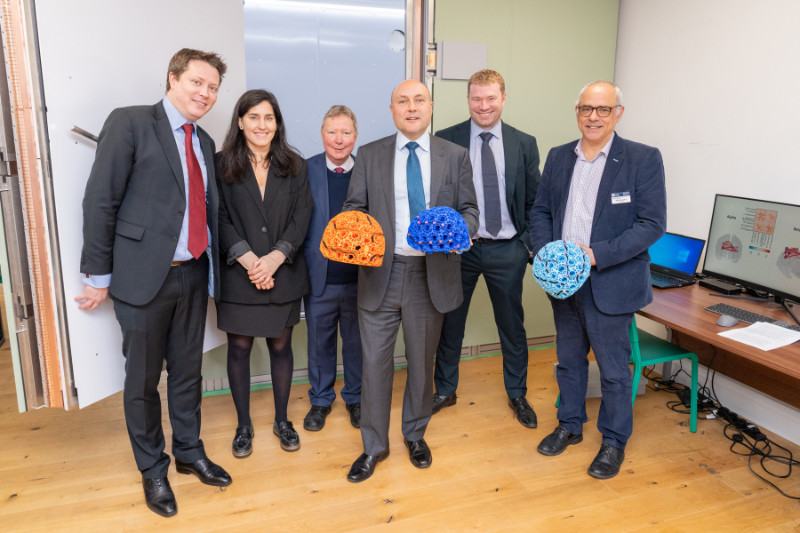Quantum Investment in Brain Imaging for Dementia
University of Nottingham spin-out company Cerca Magnetics has been awarded £2m as part of £45 million government investment in the UK's quantum sector for wearable brain imaging research to help detect early signs of dementia.

The investment announcement was made during a visit to Cerca Magnetics Nottingham headquarters this week by Science Minister Andrew Griffith MP who outlined how this funding supports the government's vision to transform into a quantum-enabled economy by 2033.
The wearable OPM-MEG system was originally prototyped and tested at the University of Nottingham’s Sir Peter Mansfield Imaging Centre – part of the School of Physics and Astronomy and has been commercialised by Cerca Magnetics who design and install systems for use in research institutions around the world.
This new funding will be used to install a system at the Oxford Centre for Human Brain Activity who will be using it to develop a greater understanding of exactly what happens to the function of the brain in people with dementia, which could lead to developing methods for earlier diagnosis and treatment.
The University of Nottingham and Cerca Magnetics, in partnership with Colorado based atomic physics company QuSpin Inc., have pioneered the rapid development of this new type of brain scanner, which employs quantum technology to measure magnetic fields above the scalp. A process termed magnetoencephalography (MEG).
The system uses small LEGO-brick-sized optically pumped magnetometers (OPMs) to measure the brain magnetic field, these have been incorporated into a lightweight helmet that allows people to move freely during scaning. The innovative design means the system can be adapted to fit anyone, from newborns to adults, and sensors can be placed much closer to the head, dramatically enhancing data quality. OPM-MEG is also much cheaper than conventional MEG scanners, providing greater accessability for clinical institutions.




































